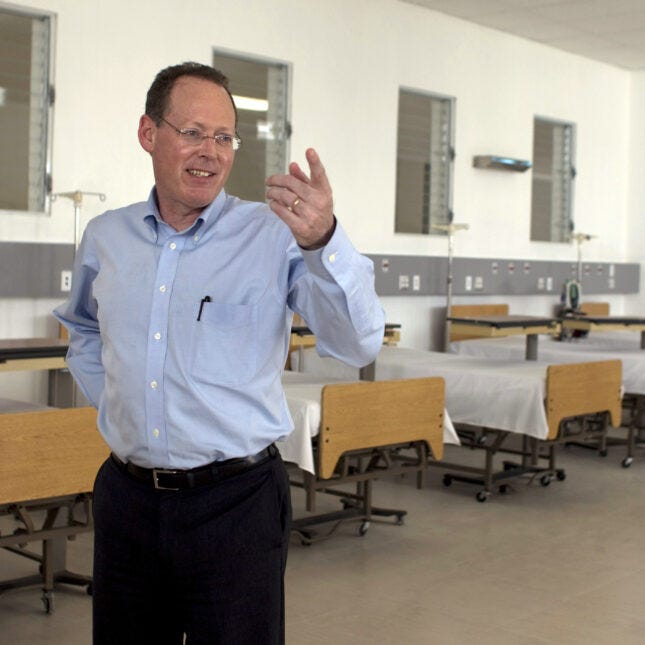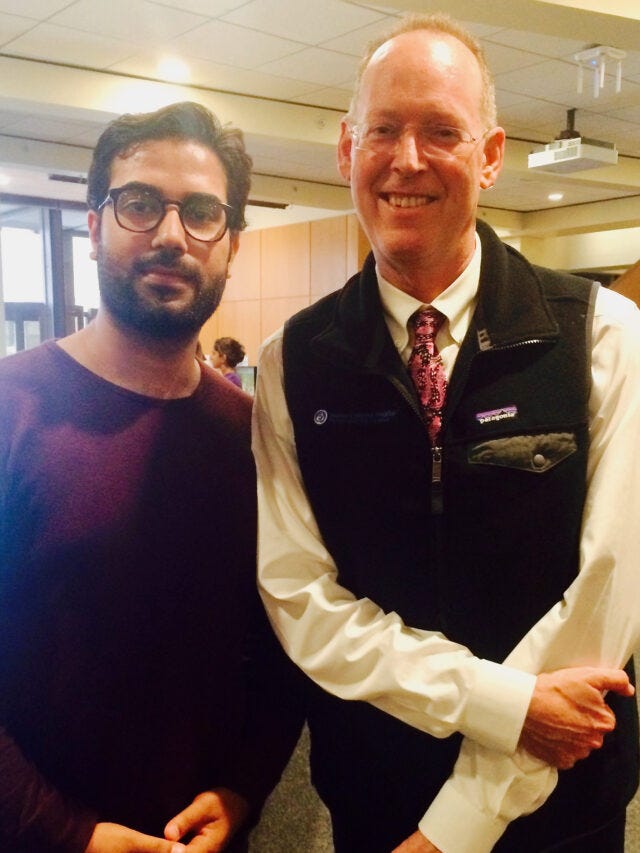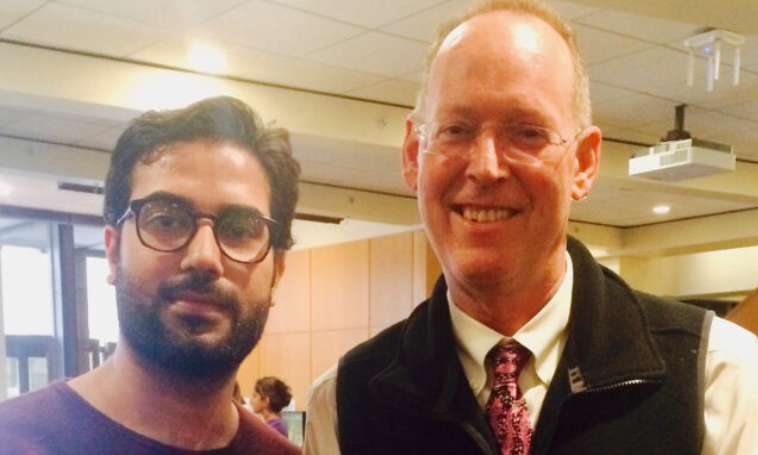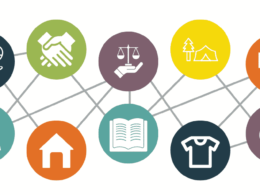his philosophy of medicine … was the
“ preferential option for the poor”
StatNews
By Junaid Nabi
Feb. 23, 2022
Partners in Health co-founder Paul Farmer gestures during the 2012 inauguration of a national referral and teaching hospital in Mirebalais, 30 miles north of Port-au-Prince, Haiti.DIEU NALIO CHERY/AP
Key messages
Summarized by Joaquim Cardoso MSc.
Chief Editor of The Health Strategy Institute blog
February 23, 2022
What was his philosophy of Medicine?
- … his philosophy of medicine … was — the “ preferential option for the poor”, as in founding Partners in Health in 1987, the social justice and global health organization
- This philosophy, which is still a radical notion in health care, refers to the idea that everyone in the world, especially people who are marginalized, should expect and receive the same kind of high-quality and advanced care that people in high-income countries expect and receive.
What was his approach to Health Systems Improvement?
- Farmer’s teachings challenged students and practitioners to pursue a system strengthening approach to delivering health care and to think beyond the biomedical aspect of disease.
- This approach, highlighted as the “ Five S’s” in Partners in Health’s work — “staff, stuff, space, systems, and social support” — remains one of his many important contributions in the field of global health care delivery.
Example: The case of Tuberculosis
- Policymakers around the world, for instance, often think about diseases from a pathological or biomedical perspective, such as the disease tuberculosis is caused by a bacterium called Mycobacterium tuberculosis
- but … tuberculosis is also a consequence of poverty, which it why it is still so common among those living in poorly ventilated spaces and those who lack access to adequate nutrition.
- Without addressing the social and financial aspects of tuberculosis, including provision of infrastructural support for those at risk for it, or the availability of well-trained medical staff, it is not possible to efficiently alleviate the suffering from tuberculosis.
What Farmer meant by “accompaniment”?
Another idea Farmer wanted physicians and health policy leaders to understand was that of accompaniment, which he described as,
- “To accompany someone is to go somewhere with him or her, to break bread together, to be present on a journey with a beginning and an end…”
- What he wanted leaders to understand was that without empathy — without properly listening to the concerns of, and working side-by-side with, those who need health care — one cannot develop effective policies.
- The work of Partners in Health has illustrated how empowering and training local collaborators, such as community health workers, is essential to building strong health systems.
LONG READ

What I learned from Paul Farmer: Treat the systems around the patient, not just the disease
his philosophy of medicine … was the “ preferential option for the poor”
StatNews
By Junaid Nabi
Feb. 23, 2022
As a young physician trying to understand how I could help improve health care delivery for marginalized patients, I was dismayed by the enormity of the barriers — economic, social, and political — that impede the path toward good health.
Having grown up in the politically fragile and economically disadvantaged Kashmir region of India, I was all too familiar with the rhetoric local and global leaders employ to get out of answering difficult questions about helping people with no real power.
Early in my career as a physician, I was fortunate to come across the writings of Paul Farmer, a physician and global health champion who passed away unexpectedly on Monday, who was championing a radical notion: that people from all backgrounds living in all regions of the world deserve high-quality health care.
… Paul … was championing a radical notion: that people from all backgrounds living in all regions of the world deserve high-quality health care.
As a poetic culmination to his leadership in global health, Farmer was in Rwanda, engaged in advancing health care for the most vulnerable people in that country, when he died in his sleep.
So much of my current thinking on health systems — and the thinking of countless others — is informed by his writings and teaching.
Farmer taught an entire generation of physicians to reimagine the practice of medicine and work toward treating the systems that surround patients, and not just the diseases they had.
The first time I met Farmer was when I started a master’s in public health program at the Harvard T.H. Chan School of Public Health.
I had never seen a faculty member be celebrated as much as he was by the students at the school, many of whom, including me, had pursued this line of training because of his ideas and the impact his work had had around the world.

Even during that initial one-on-one conversation, he took the time to discuss his philosophy of medicine — the “ preferential option for the poor” — a sentiment repeatedly exemplified by the work led by Partners In Health, the social justice and global health organization he co-founded in 1987.
Even during that initial one-on-one conversation, he took the time to discuss his philosophy of medicine — the “ preferential option for the poor” — a sentiment repeatedly exemplified by the work led by Partners In Health, the social justice and global health organization he co-founded in 1987.
This philosophy, which is still a radical notion in health care, refers to the idea that everyone in the world, especially people who are marginalized, should expect and receive the same kind of high-quality and advanced care that people in high-income countries expect and receive.
This philosophy, which is still a radical notion in health care, refers to the idea that everyone in the world, especially people who are marginalized, should expect and receive the same kind of high-quality and advanced care that people in high-income countries expect and receive.
While many greet this idea with skepticism, it was Farmer’s special ability to inspire people to work toward this goal and relentlessly underscore the moral urgency of health equity.
From building collaborations to tackling the epidemic of multidrug-resistant tuberculosis in Peru to developing the HIV Equity Initiative that provides free, comprehensive treatments to HIV-positive patients in Haiti, Farmer illustrated the life-changing impact that global health care organizations can have when their services put the needs of vulnerable people at the center of what they do.
Farmer’s teachings challenged students and practitioners to pursue a system strengthening approach to delivering health care and to think beyond the biomedical aspect of disease.
This approach, highlighted as the “ Five S’s” in Partners in Health’s work — “staff, stuff, space, systems, and social support” — remains one of his many important contributions in the field of global health care delivery.
Farmer’s teachings challenged students and practitioners to pursue a system strengthening approach to delivering health care and to think beyond the biomedical aspect of disease.
This approach, highlighted as the “ Five S’s” in Partners in Health’s work — “staff, stuff, space, systems, and social support” —
Policymakers around the world, for instance, often think about diseases from a pathological or biomedical perspective, such as the disease tuberculosis is caused by a bacterium called Mycobacterium tuberculosis.
But this narrow understanding of the disease is one of the reasons that it continues to be a massive challenge in many parts of the world, because tuberculosis is also a consequence of poverty, which it why it is still so common among those living in poorly ventilated spaces and those who lack access to adequate nutrition.
for example … tuberculosis is also a consequence of poverty, which it why it is still so common among those living in poorly ventilated spaces and those who lack access to adequate nutrition.
Without addressing the social and financial aspects of tuberculosis, including provision of infrastructural support for those at risk for it, or the availability of well-trained medical staff, it is not possible to efficiently alleviate the suffering from tuberculosis.
Without addressing the social and financial aspects of tuberculosis, including provision of infrastructural support for those at risk for it, or the availability of well-trained medical staff, it is not possible to efficiently alleviate the suffering from tuberculosis.
Another idea Farmer wanted physicians and health policy leaders to understand was that of accompaniment, which he described as,
“To accompany someone is to go somewhere with him or her, to break bread together, to be present on a journey with a beginning and an end…”
Another idea Farmer wanted physicians and health policy leaders to understand was that of accompaniment,
“To accompany someone is to go somewhere with him or her, to break bread together, to be present on a journey with a beginning and an end…”
What he wanted leaders to understand was that without empathy — without properly listening to the concerns of, and working side-by-side with, those who need health care — one cannot develop effective policies.
What he wanted leaders to understand was that without empathy — without properly listening to the concerns of, and working side-by-side with, those who need health care — one cannot develop effective policies.
As documented in the movie “Bending the Arc,” the work of Partners in Health has illustrated how empowering and training local collaborators, such as community health workers, is essential to building strong health systems.
the work of Partners in Health has illustrated how empowering and training local collaborators, such as community health workers, is essential to building strong health systems.
While Farmer’s presence was inspiring and galvanizing, those of us touched by his life — and those touched by his ideas — can continue to apply his lessons to manage the fallout from the ongoing pandemic and tackle other looming health crises.
If policymakers pay attention to his calls for accompaniment, they will realize that we cannot end the pandemic unless we end it for the most marginalized around the world.
As national health care leaders examine when and how the fourth dose of the Covid vaccine may be delivered in wealthier nations, more than 1 billion people in Africa are struggling to get their first dose.
It is commonplace to see debates on coronavirus variants, but rare to see global leaders creating initiatives to invest in global vaccine equity, a policy that can help the world contain the spread of dangerous and unpredictable variants.
Global leaders need to heed Farmer’s warning — “costly failures result from failures of the imagination” — and commit resources towards health policies that are based on solidarity, compassion, and accompaniment.
While Farmer’s presence was inspiring and galvanizing, those of us touched by his life — and those touched by his ideas — can continue to apply his lessons to manage the fallout from the ongoing pandemic and tackle other looming health crises.
Global leaders need to heed Farmer’s warning — “costly failures result from failures of the imagination” — and commit resources towards health policies that are based on solidarity, compassion, and accompaniment.
About the author
Junaid Nabi is a physician and senior researcher in health care strategy at Harvard Business School and serves on the Working Group on Regulatory Considerations for Digital Health and Innovation at the World Health Organization.
He is a New Voices Senior Fellow at the Aspen Institute and a Millennium Fellow at the Atlantic Council.
Originally published at https://www.statnews.com on February 23, 2022.












